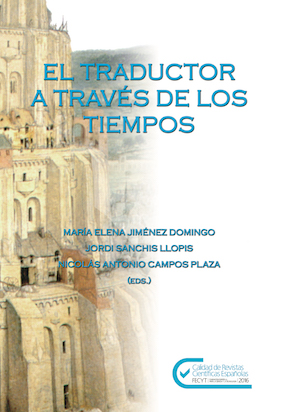Francisco Carrasco, the translator of Cicero's Pro Ligario? Alfredo Adolfo Camús and translational fiction
DOI:
https://doi.org/10.7203/qfilologia.21.9316 Abstract
Abstract
In 1857 Alfredo Adolfo Camús (1817-1889), Professor of Latin Literature at the Central University of Madrid, published in the Semanario Pintoresco Español a supposed translation of Cicero’s Pro Ligarius. Camús tells us that he had found it in an old manuscript when it was about to be destroyed by a ragman and argues that it is a translation by a character of the eighteenth century, Francisco Carrasco, Marqués de la Corona, whose other versions of classics are not known by us. Both fictional circumstances, namely, the find of the manuscript as well as its doubtful attribution suggest us that this is not but a false translation and that, in fact, Cicero’s text does not come from a direct version, but the remake of a previous text written in the eighteenth century.
Keywords: Pro Ligarius; Cicero; Alfredo Adolfo Camús; Rodrigo de Oviedo; fiction
 Downloads
Downloads
Downloads
Published
How to Cite
-
Abstract1422
-
PDF (Español)489
Issue
Section
License
 Este obra está bajo una licencia de Creative Commons Reconocimiento-NoComercial-SinObraDerivada 4.0 Internacional.
Este obra está bajo una licencia de Creative Commons Reconocimiento-NoComercial-SinObraDerivada 4.0 Internacional.
Authors who publish with this journal agree to the following terms:
- Authors retain copyright and grant the journal right of first publication with the work simultaneously licensed under a Creative Commons Attribution License that allows others to share the work with an acknowledgement of the work's authorship and initial publication in this journal.
- Authors are able to enter into separate, additional contractual arrangements for the non-exclusive distribution of the journal's published version of the work (e.g., post it to an institutional repository or publish it in a book), with an acknowledgement of its initial publication in this journal.
- Authors are permitted and encouraged to post their work online (e.g., in institutional repositories or on their website) prior to and during the submission process, as it can lead to productive exchanges, as well as earlier and greater citation of published work (See The Effect of Open Access).




